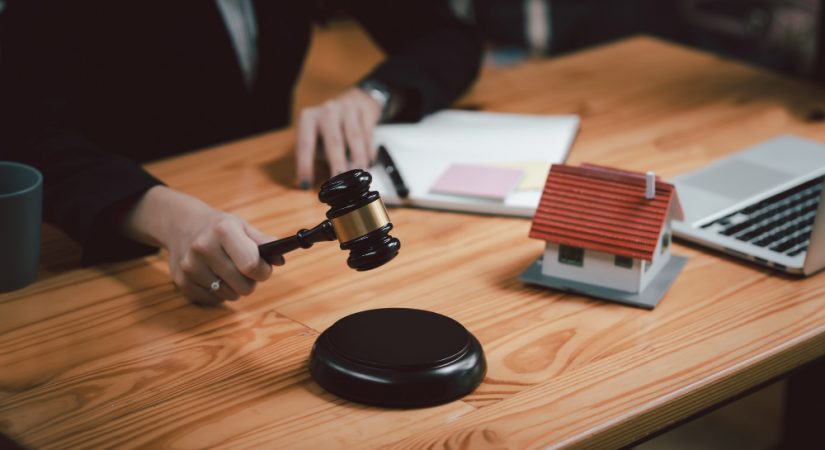Foreclosure is a daunting process that no homeowner ever wants to face. Yet, understanding it is the first step toward navigating or avoiding it altogether. Whether you’re at risk of foreclosure or simply want to be informed, this guide covers everything you need to know.
What is Foreclosure?
Definition of Foreclosure
Foreclosure is the legal process by which a lender takes possession of a property when the homeowner fails to make mortgage payments. It’s a way for lenders to recoup their losses by selling the property.
Why Foreclosures Happen
Foreclosures typically occur due to financial hardship—unexpected expenses, job loss, or economic downturns. When payments are missed for an extended period, lenders initiate foreclosure.
The Stages of the Foreclosure Process
Pre-Foreclosure
What Happens in Pre-Forecloure?
This stage begins after you miss several mortgage payments. The lender will notify you of the delinquency, often offering options to resolve it.
Can You Stop Pre-Foreclosure?
Yes! You can avoid foreclosure at this stage by catching up on payments, negotiating with the lender, or seeking assistance.
Notice of Default
Understanding the Legal Notification
The Notice of Default (NOD) officially starts the foreclosue process. It’s a public record, which may impact your credit further.
Your Options After Receiving a Notice
You can still negotiate, apply for loan modifications, or sell the property to pay off the debt.
Foreclosre Auction
What to Expect at the Auction
The property is auctioned to the highest bidder. If bids don’t cover the debt, the lender may repossess the property.
What Happens if the Property Doesn’t Sell?
It becomes Real Estate Owned (REO) property, and the lender may list it for sale on the market.
Post-Foreclosre
What Happens to the Home?
Ownership transfers to the lender or a new buyer. You’ll need to vacate, but eviction timelines vary.
Your Rights After Foreclosure
In some states, you may have a redemption period to reclaim the property by paying the owed amount.
Types of Foreclosure
Judicial Foreclosue
This type requires court approval, giving homeowners more time to address their situation.
Non-Judicial Foreclosre
Handled outside of court, it’s quicker but may limit homeowner rights.
Strict Foreclosure
Rarely used, it transfers ownership directly to the lender without a sale.
Alternatives to Forelosure
Loan Modification
Adjusting your loan terms can make payments more manageable.
Short Sale
Selling the property for less than the mortgage balance may satisfy the lender.
Deed in Lieu of Forecloure
You voluntarily transfer ownership to the lender, avoiding a foreclosure record.
How to Avoid Forecloure
Communicating with Your Lender
Open communication can lead to payment plans or temporary relief options.
Budgeting and Financial Counseling
A financial advisor can help you manage expenses and prioritize payments.
Exploring Government Assistance Programs
Programs like HAMP (Home Affordable Modification Program) can provide relief.
The Emotional Impact of Foreclosur
Stress and Anxiety
Foreclosure can be overwhelming, but you’re not alone—many face this challenge.
Seeking Support and Resources
Counseling and community programs can provide emotional and practical help.
Legal and Financial Consequences of Foreclosur
Credit Score Impact
Foreclosure significantly lowers your credit score, but rebuilding is possible.
Tax Implications
Forgiven mortgage debt might be taxable, though exceptions exist.
Possibility of Deficiency Judgments
In some cases, lenders may seek the balance not covered by the property sale.
Tips for Homeowners Facing Foreclosur
Staying Informed About Your Rights
Knowledge is power—research your state’s foreclosure laws.
Finding Legal Help
An attorney specializing in foreclosur can be a game-changer.
Considering Your Next Steps
Think about renting, downsizing, or even starting fresh in a new location.
Conclusion
Foreclosre is a difficult process, but it doesn’t have to define your future. By understanding the steps, exploring alternatives, and seeking help when needed, you can regain control of your situation. Take action early—your home and financial stability may depend on it.
FAQs
Can foreclosure be stopped once it starts?
Yes, depending on the stage, options like repayment plans or legal defenses can halt the process.
How long does the forclosure process take?
It varies by state and lender, but it typically takes several months to over a year.
Will foreclosre ruin my credit forever?
No, its impact decreases over time. With effort, you can rebuild your credit.
Can I buy another house after foreclosur?
Yes, though it may take a few years and require a higher down payment.
What should I do if I’m at risk of foreclosur?
Reach out to your lender, consult a housing counselor, and explore assistance programs immediately.
